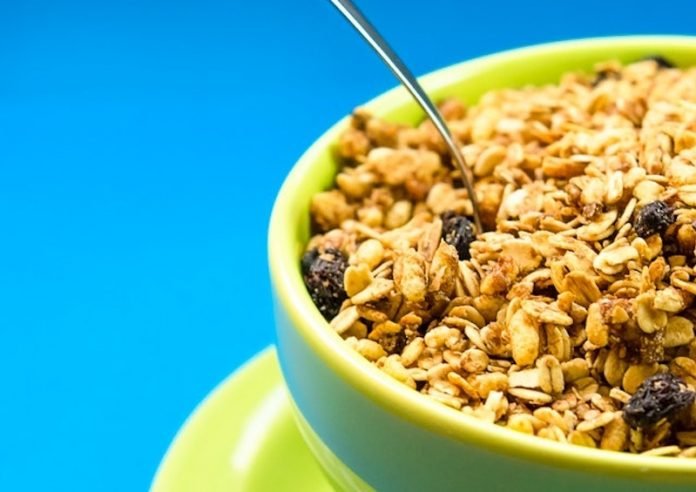
Scientists from Stanford School of Medicine found that the health benefits of dietary fiber vary across people and may depend on the specific type of fiber and the dose consumed.
They found that the physiological, microbial, and molecular effects of individual fibers differ substantially.
The research is published in Cell Host & Microbe and was conducted by Michael Snyder et al.
High-fiber diets reduce the risk of heart attack, stroke, and other chronic diseases. They act by lowering cholesterol and promoting a healthier lipid profile for people eating a Westernized diet.
Dietary fibers are carbohydrates that are selectively metabolized by gut microbes but are otherwise indigestible by humans.
Chemically, fibers are diverse in length, branching, solubility, charge, and other properties.
In the study, the team examined the health effects of dietary supplementation with two common and structurally distinct soluble fibers: arabinoxylan (AX), which is common in whole grains, and long-chain inulin (LCI), which is found in onions, chicory root, and Jerusalem artichokes.
The researchers examined blood and stool samples in 18 participants.
The participants consumed 10 grams of fiber per day during the first week, 20 grams per day during the second week, and 30 grams per day during the third week.
The team found fiber- and often dose-dependent microbial and systemic responses.
On average, AX in whole grains was linked to a significant reduction in low-density lipoprotein (LDL), known as the bad cholesterol, and an increase in bile acids, which may be contributing to the cholesterol reduction.
Yet individual responses varied, and some participants saw little to no change in cholesterol levels.
Meanwhile, LCI in onions was linked to a modest decrease in inflammation markers and an increase in the abundance of Bifidobacterium—a generally beneficial type of gut microbe known to produce healthy short-chain fatty acids.
But at the highest dose, there was an increase in inflammation and levels of a liver enzyme called alanine aminotransferase, suggesting that too much of this fiber may be harmful.
Again, these potentially negative responses were variable across the participants.
Overall, these findings showed that the benefits of fiber are dependent on fiber type, dose, and participant—a landscape of factors resulting from interactions between fiber, the gut microbiome, and the host.
These results have important implications for personalized responses and interventions.
If you care about nutrition, please read studies about diet that could boost health in people with diabetes, and this diet can reduce leaky gut in older people.
For more information about nutrition, please see recent studies that vitamin D could cut cancer death risk, and results showing this supplement could keep dementia at bay.
Copyright © 2022 Knowridge Science Report. All rights reserved.



